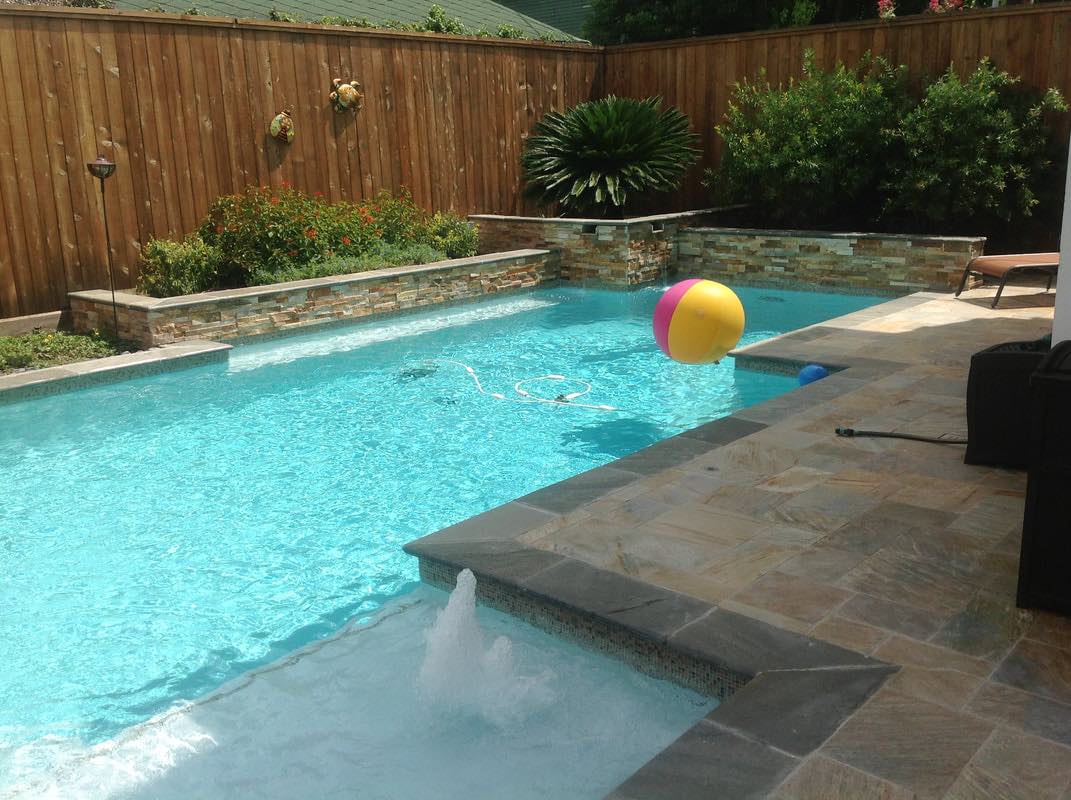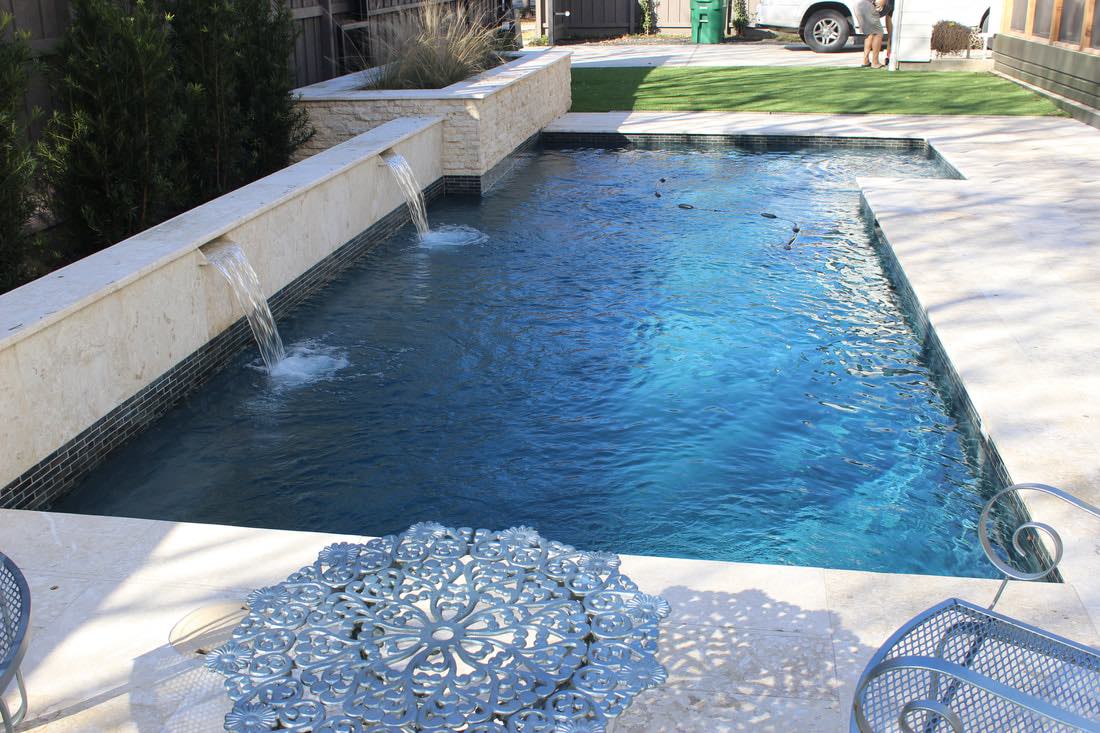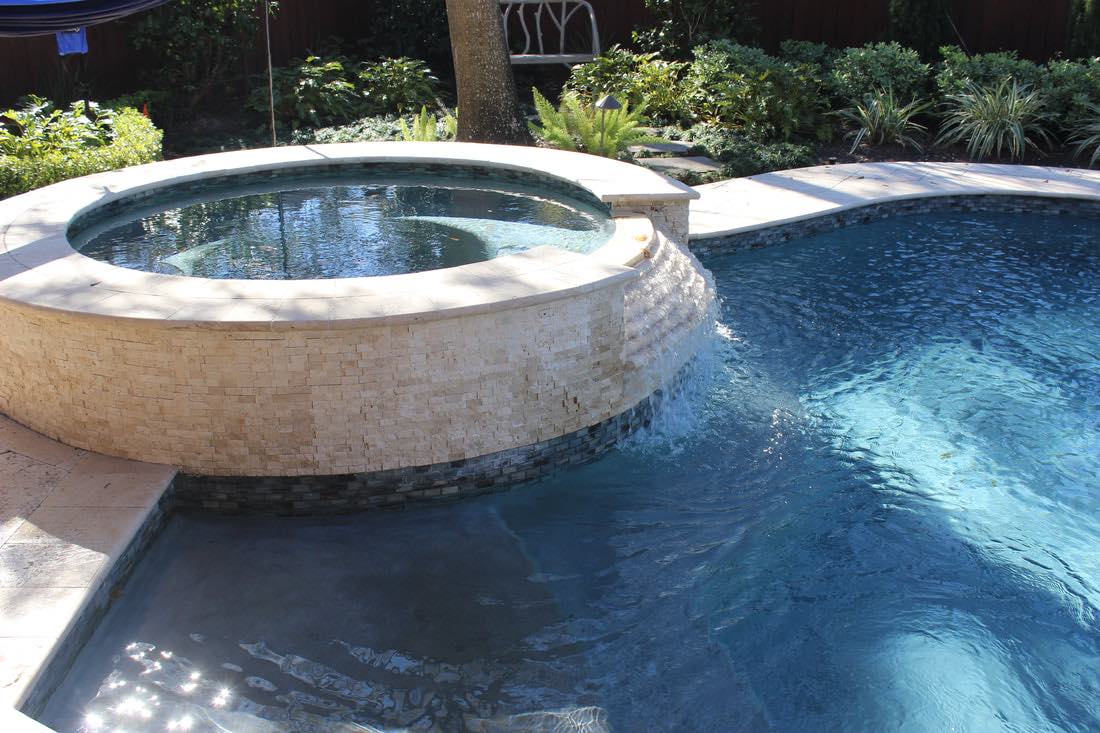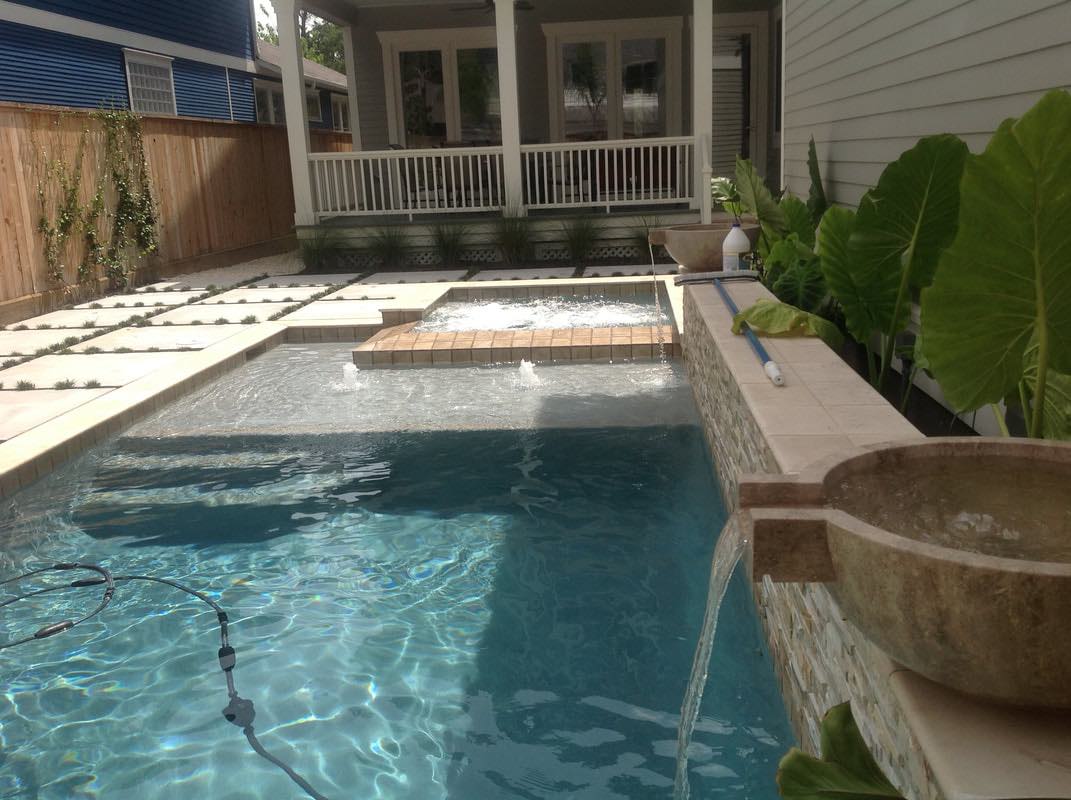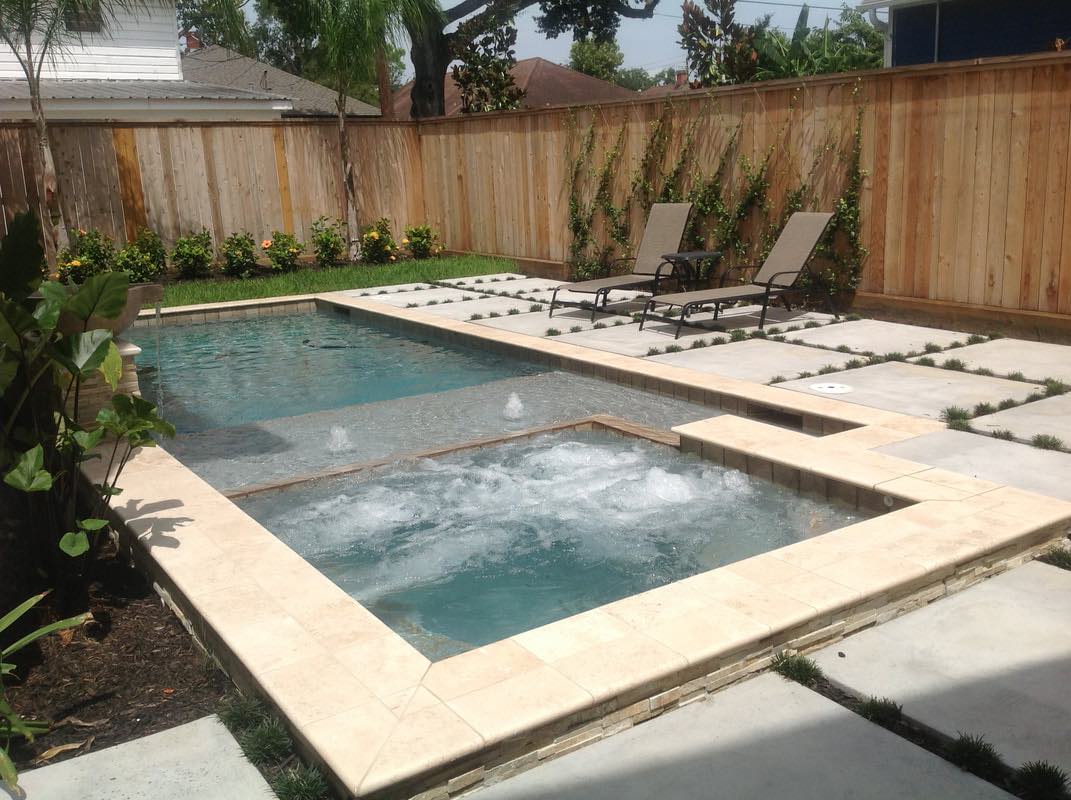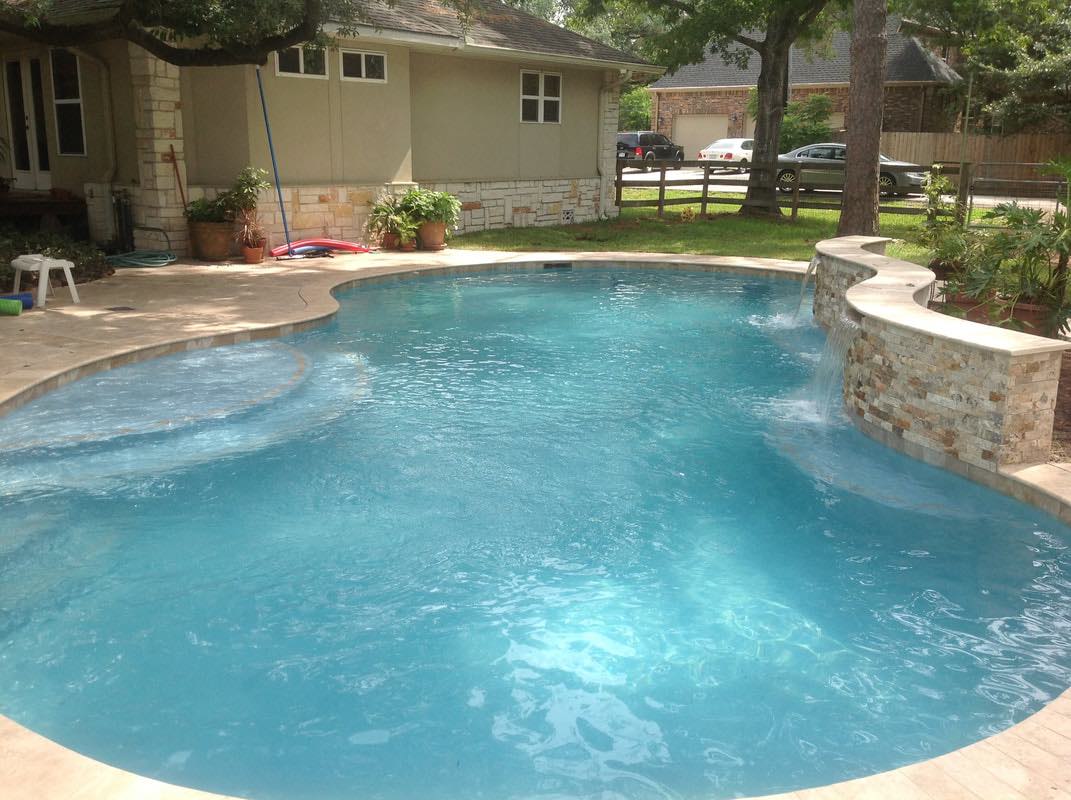Pros & Cons of a Saltwater Pool vs. Chlorine
Saltwater pools are growing in popularity, and more and more homeowners, hotels, country clubs, aquatic facilities and others are installing them. There is an increasing demand for saltwater pool systems in Houston and the surrounding areas.
Advantages of Saltwater Pools
When it comes to saltwater versus chlorine pools, there are obvious differences. For one, chlorine can irritate the skin. In addition, red eyes are common.
But what about the dry skin with chlorine and the strong chlorine odor? On occasion, most people who swim may have suffered the consequences of too much chlorine.
But which has more advantages and disadvantages, saltwater pool vs. chlorine?
Let us look beyond the excellent benefit of saltwater pools regarding softer water, smoother skin, no red eyes and irritation, and no chlorine smell. See the added benefits of less maintenance and cost savings over time.
Maintenance of a Saltwater Pool vs. Chlorine Pool
Saltwater pools have soft water that feels almost like silk. This is because the mineral-rich salts soften the pool water. Salt chlorinators still generate chlorine in a saltwater pool, but it’s done at significantly lower levels than a chlorine pool.
The chlorine is produced by the salt system or salt generator, which comprises a salt cell and control box. This apparatus creates chlorine from molecules of salt through a process called electrolysis. The salt system is mounted on the filtration system. As the saltwater pool pump moves the water through the filter, hypochlorous acid is produced and released into the water regularly as it returns to the pool.
In contrast, chlorine pool owners must frequently test the pool water and make trips to the store to replenish the supply of tablets, powder or liquids. For this reason, saltwater pool maintenance is considered easier and less time-consuming.
In addition to less maintenance with saltwater pools, since pool owners don’t have to store chlorine on-site or handle harsh chemicals, saltwater pool systems are considered environmentally safer. That’s why they’re sometimes referred to as green pools.
If algae become a problem, owners may have to shock the pool. The shocking process in traditional pools involves using large amounts of chlorine to kill the algae. With algae problems in a saltwater pool system, the process is similar. However, a calcium hypochlorite shock would be used instead. Instead of loading the pool up with shock yourself, the salt system can be set to shock it.
Cost Ownership: Saltwater Pool vs. Chlorine
While owning a saltwater pool requires less maintenance and can be easier on you and the environment, it does come with a higher initial price tag. A salt system’s average cost can range between $400 and $2,000. Installation costs can vary as well.
However, the salt itself is relatively inexpensive and over the long term, you will save money for sure not having to purchase mass amounts of chlorine.
Disadvantages of a Saltwater Pool
There are a few disadvantages. However, if you know them, you can manage properly to avoid any problems.
Salt is also very corrosive compared to chlorine. Not great news for pool components made of steel, such as ladders and handrails. Hiring a reputable pool builder can replace the steel components with sealed steel, composites or even plastics.
Depending on the pool’s surroundings, the saltwater can also wreak havoc on your deck. As the water spray evaporates, the deck is left covered in salt. Certain bluestone, flagstone, and travertine types are especially vulnerable to salt corrosion and may require special treatment.
So, let’s finish by breaking down a brief list of the pros and cons of a saltwater pool vs. chlorine.
Saltwater Pool Pros
- Softer feeling water resulting in smoother skin
- Gentler on the skin, eyes, nose, throat and lungs, resulting in decreased irritation
- No harsh chlorine odor
- Saves money over time
- Decrease in storing and handling harsh chemicals
Saltwater Pool Cons
- Corrosive to some pool components.
- The salt can damage some masonry types
- The initial investment in a salt system is higher.
- Chlorine will not be made when the temperature falls below 60 degrees.
Chlorine Pool Pros
- Some people like the smell of chlorine
- Chlorine will remain in the water when the temperature falls below 60 degrees.
Chlorine Pool Cons
- It can cause red eyes, dry skin, bleached swimwear, and irritate the nose, throat and lungs.
- Chlorine must be stored and handled along with other harsh pool chemicals
- Chloramimines can cause a strong chlorine smell
So, Which Will You Choose, Saltwater Pool vs. Chlorine?

For many owners, silky smooth water that doesn’t dry out sensitive skin is enough to justify the cost of saltwater pool systems. When saltwater pools are installed properly and owners follow suggested maintenance procedures, problems are few, and benefits are many.
So, the decision to own a saltwater pool vs. chlorine is up to you. Either way, pool season is always a favorite time of year. Marco! Polo!
Contact The Venture Pool Company serving Houston and the surrounding areas to learn more.
We provide new pool construction, remodeling, pool equipment, pool lighting, and pool cleaning and maintenance.

